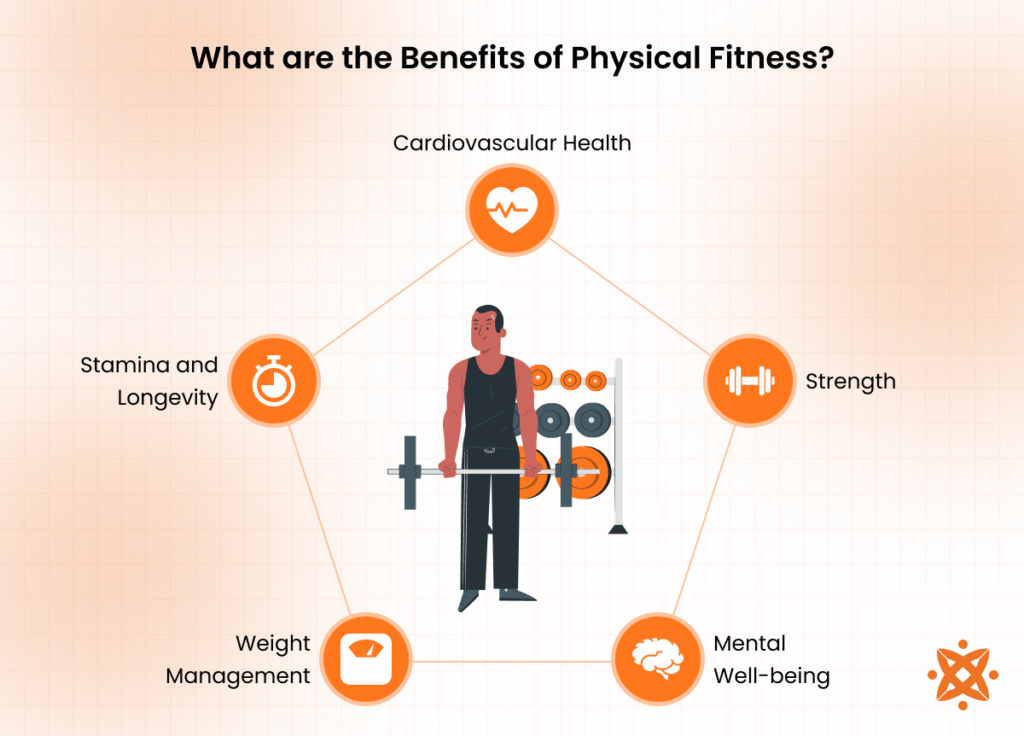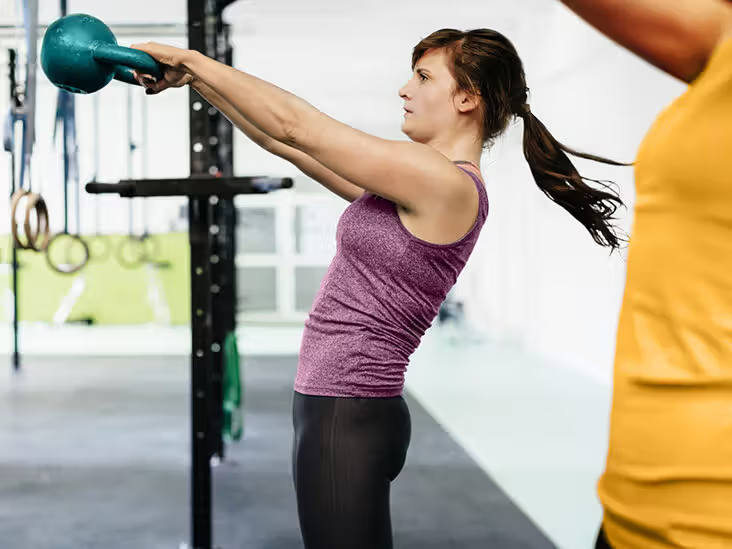Whether you’re just starting your fitness journey or looking to optimize your current routine, understanding the fundamentals of a physical fitness program is essential. While there are many elements that contribute to good health, two main components stand out above the rest:
✅ Exercise
✅ Nutrition
These two work hand in hand to improve your overall fitness, boost your energy, support mental health, and reduce your risk of chronic diseases.
Let’s break down how each part contributes to a successful fitness program—and why you need both for long-term results.
🔹 Exercise: The Core of Physical Activity
Exercise is the physical activity that strengthens your body, improves endurance, and promotes cardiovascular and muscular health. But not all exercise is the same. A complete routine usually includes:
🏋️♂️ a. Cardiovascular (Aerobic) Training
Examples: Running, cycling, swimming, brisk walking
Benefits: Improves heart health, burns calories, boosts lung capacity, reduces stress
🏋️ b. Strength Training
Examples: Weightlifting, resistance bands, bodyweight exercises
Benefits: Builds lean muscle, improves bone density, boosts metabolism
🤸 c. Flexibility and Mobility
Examples: Yoga, stretching, dynamic warm-ups
Benefits: Increases range of motion, reduces injury risk, aids recovery
🧘 d. Balance and Core Training
Examples: Pilates, balance board, single-leg movements
Benefits: Improves stability, supports posture, enhances athletic performance
✅ Pro Tip: Aim for at least 150 minutes of moderate-intensity aerobic exercise and two strength training sessions per week, as recommended by the CDC.
🔹 Nutrition: The Foundation of Recovery and Performance

Exercise alone won’t deliver optimal results unless it’s paired with proper nutrition. What you eat directly impacts your energy levels, recovery time, and muscle growth.
🍎 a. Macronutrients Matter
- Carbohydrates: Fuel for workouts and brain function
- Protein: Essential for muscle repair and growth
- Fats: Support hormone function and brain health
🥗 b. Micronutrients Are Key Too
- Vitamins and minerals (like calcium, magnesium, and vitamin D) are crucial for bone health, energy production, and overall body function.
💧 c. Hydration Can’t Be Ignored
- Dehydration affects physical performance, cognitive clarity, and recovery. Drink enough water—especially before, during, and after exercise.
✅ Pro Tip: Stick to whole, minimally processed foods, and consider timing your meals around workouts to enhance performance and recovery.
🧠 Why You Need Both: Exercise + Nutrition
Think of your fitness program like a car:
- Exercise is the engine—it powers your body, builds strength, and burns fat.
- Nutrition is the fuel—it gives your body the energy and raw materials to recover, grow, and thrive.
Without one, the other can’t function at its full potential.
🧩 Optional Add-ons to Enhance Your Fitness Program

While exercise and nutrition are the two pillars, other factors can boost your results:
- ✅ Sleep: Helps muscle recovery and hormone regulation
- ✅ Stress Management: Reduces cortisol, supports mental health
- ✅ Consistency & Tracking: Keeps you motivated and goal-oriented
- ✅ Professional Guidance: Trainers or nutritionists can customize your plan
📊 Summary: Key Takeaways
| Component | Role in Fitness | Key Benefits |
| Exercise | Builds strength, endurance, flexibility | Boosts heart health, muscle, energy |
| Nutrition | Fuels performance, aids recovery | Supports muscle growth, wellness |
By prioritizing both exercise and nutrition, you’re setting the foundation for a healthier, stronger, and more energized version of yourself.
FAQs About Fitness Program Essentials
1. Can I get fit with just exercise and no diet changes?
You may see some improvements, but without proper nutrition, your progress will be limited, and recovery may be slower.
2. Is strength training more important than cardio?
Both are important. Strength training builds muscle, while cardio boosts heart and lung health. A balanced program includes both.
3. What’s the best time to eat before a workout?
Eat a small, balanced meal or snack 30–90 minutes before exercising. Include carbs for energy and some protein.
4. Do I need supplements in my fitness program?
Not necessarily. Whole foods should be your primary source of nutrition. Supplements are useful if you have gaps or deficiencies.
5. How many days a week should I exercise?
Aim for 3–5 days a week, depending on your goals and schedule. Include a mix of cardio and strength training.
6. What should I eat after a workout?
A post-workout meal or shake with protein and carbs helps with recovery and muscle repair.
7. Can sleep impact my fitness results?
Absolutely. Poor sleep can reduce performance, increase injury risk, and slow down recovery.
8. How long does it take to see results from a fitness program?
Visible changes may take 4–8 weeks, but improvements in energy and strength can be felt sooner with consistency.
💬 Final Words
A successful physical fitness program isn’t just about hitting the gym—it’s a combination of movement and mindful eating. By focusing on exercise and nutrition, you’ll not only improve how you look but also how you feel, move, and live. Start with small changes, stay consistent, and watch your fitness journey transform.